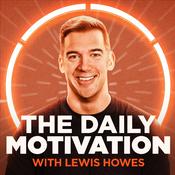Parenting in the Screen Age - The Screenagers Podcast
Delaney Ruston, MD

Latest episode
82 episodes
- Dr. Delaney is joined by Laura Kastner, PhD, a clinical psychologist and author of multiple parenting books. Together, they delve into strategies for talking to our teens about sex and not letting taboo or embarrassment get in the way of what can be vital conversations.
Covering topics such as consent and alcohol they emphasize the significance of being an 'askable parent' through encouraging open conversation and not being afraid to talk plainly about what can be perceived as delicate or awkward topics for both teens and parents.
Please note this episode features discussion of mature themes and is intended for an adult audience.
Featured Expert
Laura Kastner, PhD
Books
Wise-Minded Parenting
Getting To Calm: Cool-headed strategies for parenting tweens and teens
The Launching Years: Strategies for Parenting from Senior Year to College Life
The Seven-Year Stretch: How Families Work Together to Grow Through Adolescence
Additional Resources
Screenagers Website
Bring Screenagers to Your Community
Time Code
00:00 Introduction to the Screenagers Podcast
00:37 Meet Dr. Laura Kastner: Expert on Parenting Teens
00:48 The Importance of Open Communication
01:13 Challenges in Discussing Physical Intimacy
02:19 Addressing Taboos and Difficult Topics
03:27 Psychological Immunization and Early Conversations
04:48 Practical Tips for Parents
05:28 Real-Life Examples and Focus Groups
08:45 The Role of Humility in Parenting
10:28 Discussing Consent and Alcohol
17:30 Concluding Thoughts and Resources - In this episode, Dr Ruston is joined by journalist and author Catherine Price, author of How To Break Up With Your Phone. They discuss her new book co-authored with Jonathan Haidt, 'The Amazing Generation,' aimed at empowering kids to be tech-savvy and foster real-world connections.
The conversation includes practical tips for managing tech use in families and the concept of 'The Rebels Code' for kids to use technology wisely. In addition Price shares details about tech time limits with her 10 year old daughter.
Expert
Catherine Price
Books
The Amazing Generation by Jonathan Haidt and Catherine Price
How To Break Up With Your Phone by Catherine Price
Other Resources
Screenagers Website
Bring Screenagers to Your Community
Time Code
00:00 Introduction to Parenting in the Screen Age
00:18 Meet Catherine Price: Breaking Up with Your Phone
01:11 The Genesis of The Amazing Generation
04:18 The Structure and Purpose of The Amazing Generation
06:21 Real-Life Applications and Parental Guidance
18:48 Practical Tips for Managing Screen Time
25:28 Conclusion and Resources - How can parents set limits that actually stick in a high-tech world? And what rules to set? In this episode, the prominent screen time researcher, Jean Twenge, PhD discusses her new book, 10 Rules for Raising Kids in a High-Tech World.
Twenge explains the science behind how screens disrupt sleep, and shares ways to use parental controls effectively.
The conversation also explores delaying smartphones and social media, enforcing meaningful consequences, and why changing community norms, not just household rules, can make all the difference.
Expert
Jean Twenge, PhD
Book
10 Rules For Raising Kids In A High Tech World
Resources
www.screenfreesleep.org
Screenagers Website
Bring Screenagers to Your Community
Time Code
00:00 Introduction to Parenting in the Screen Age
00:19 Meet Jean Twenge: Expert on Generational Differences
00:52 Discussing '10 Rules for Raising Kids in a High Tech World'
02:00 The Importance of No Devices in the Bedroom
04:02 Parental Controls and Device Management
05:26 The Role of Lockboxes and Parental Controls
07:50 Challenges with Parental Control Software
13:11 Promoting Screen-Free Sleep and Community Efforts
14:02 The Impact of Disturbing Content on Kids
15:53 Balancing Busy Schedules and Sleep
18:04 Setting Rules and Consequences for Device Use
19:15 Delaying Smartphones and Social Media
21:35 Final Thoughts and Community Pledges
24:08 Conclusion and Resources - Frustrated with his obsession with video gaming, Cam Adair wrote a post about his struggles that went viral. This led to his starting a movement that has brought together thousands to work to create a balanced life at Gamequitters.com. Cam is an international speaker who shares his story about gaming addiction and offers well tested advice to youth and their parents.
Expert:
Cam Adair
Episode Resources:
Game Quitters
Game Quitters Parent Support Group
Afterschool Alliance
Additional Resources:
How to bring the Screenagers movies to your community
Screenagers Website
Time Code:
00:00 Introduction
00:38 Meet Cam Adair: From Gamer to Advocate
01:57 Cam's Personal Struggles with Gaming
06:42 Turning Point: Seeking Help and Recovery
09:48 Founding Game Quitters
11:11 Impact of COVID on Gaming Habits
13:37 Advice for Parents and Kids
22:15 Final Thoughts and Resources - Dr Ruston speaks with Amy Neville, mother of Alexander Neville who tragically died at age 14 after taking a fentanyl-laced pill he obtained through Snapchat. He thought he was buying an oxycontin but instead the pill was a pill laced with fentanyl.
Amy shares her journey from grief to activism, discussing her efforts to raise awareness about the dangers of social media-facilitated drug deals and her advocacy for stronger accountability from tech companies.
This episode offers insights into the vulnerabilities of teens in the digital world, the current drug crisis, and practical advice for parents on navigating these challenges with their children.
Episode Resources:
Alexander Neville Foundation
Additional Resources:
How to bring the Screenagers movies to your community
Screenagers Website
Time Code:
00:00 Introduction
00:23 The Tragic Story of Alexander Neville
01:30 Alex's Final Days
05:00 Turning Grief into Activism
06:46 Conversations with Teens
10:05 The Role of Snapchat
18:34 Advice for Parents
21:55 Resources and Conclusion
More Education podcasts
Trending Education podcasts
About Parenting in the Screen Age - The Screenagers Podcast
Join Delaney Ruston, MD — a leading authority on parenting in the screen age and the filmmaker behind the award-winning Screenagers movies — as she explores the challenges parents face raising kids in today's digital world: think smartphones, social media, video games, and more.
Through interviews with experts, thought leaders, and young people themselves, Parenting in the Screen Age delivers the latest science, practical tips, and key insights that parents will want to implement — and share — with their kids and teens.
Podcast websiteListen to Parenting in the Screen Age - The Screenagers Podcast, How Do They Afford That? and many other podcasts from around the world with the radio.net app

Get the free radio.net app
- Stations and podcasts to bookmark
- Stream via Wi-Fi or Bluetooth
- Supports Carplay & Android Auto
- Many other app features
Get the free radio.net app
- Stations and podcasts to bookmark
- Stream via Wi-Fi or Bluetooth
- Supports Carplay & Android Auto
- Many other app features


Parenting in the Screen Age - The Screenagers Podcast
Scan code,
download the app,
start listening.
download the app,
start listening.




































